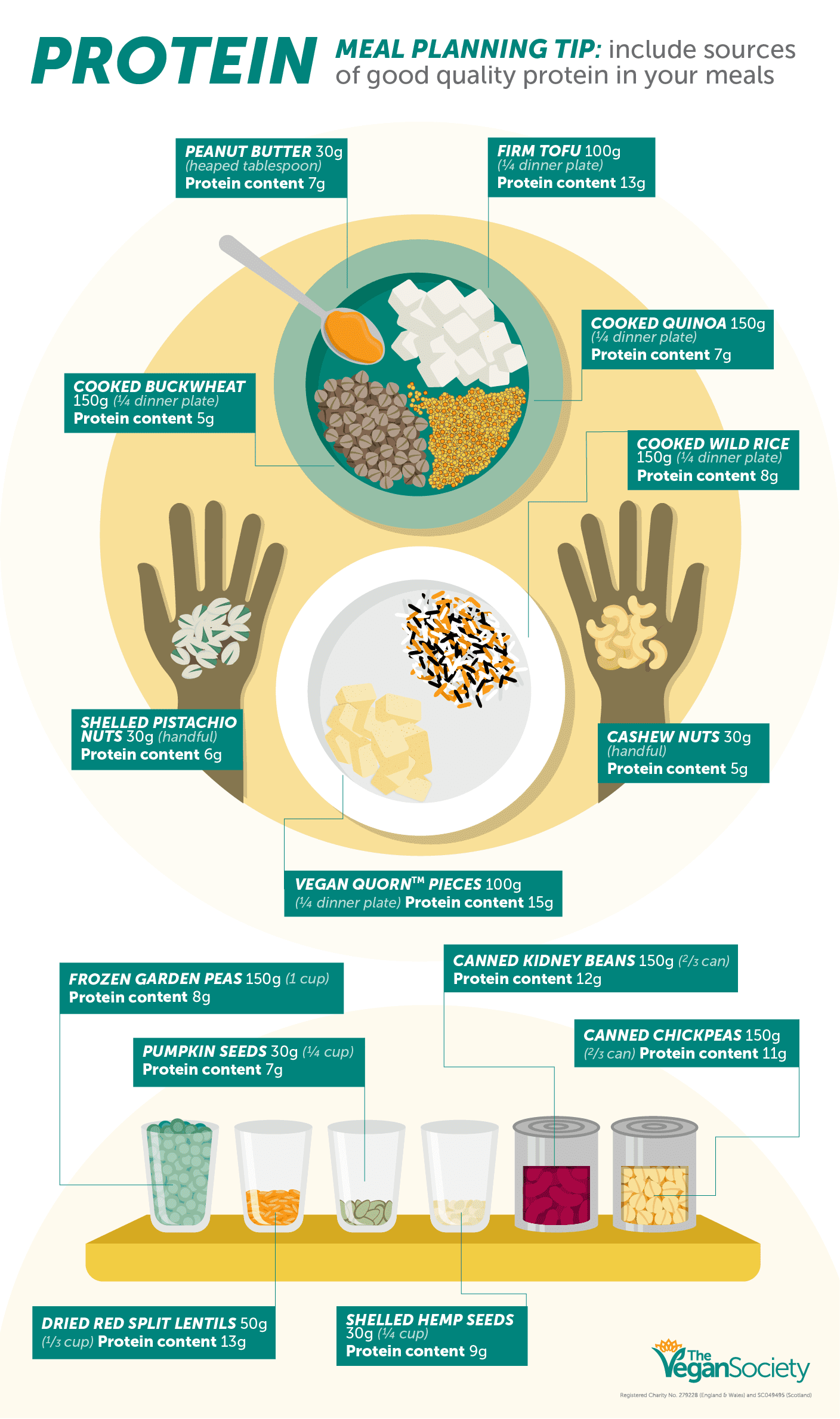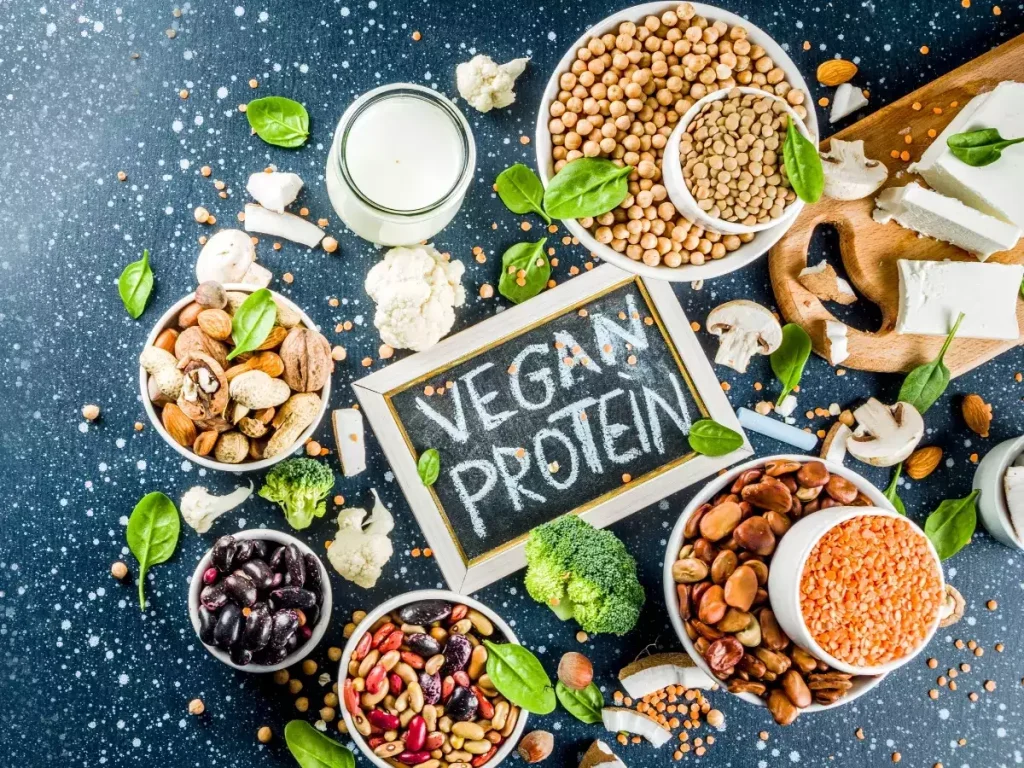As the popularity of vegan diets continues to rise, so does the importance of understanding how to meet essential nutrient needs, including protein. One common concern among those considering or following a vegan diet is whether it provides enough complete protein for optimal health. In this post, we will explore the myths and facts surrounding complete protein in a vegan diet to help you make informed choices and ensure you are meeting your protein requirements while following a plant-based lifestyle.
Understanding the Importance of Complete Protein in a Vegan Diet

Complete protein is essential for overall health and well-being, as it contains all nine essential amino acids that the body cannot produce on its own.
Vegans can meet their complete protein needs by combining different plant-based protein sources to ensure they consume all essential amino acids.
Educating oneself on the importance of complete protein in a vegan diet can help individuals make informed dietary choices for optimal health.
Opting for whole food sources of complete protein, such as quinoa, tofu, and tempeh, can provide a nutrient-dense and balanced diet.
Understanding the role of complete proteins in muscle repair and growth can motivate individuals to prioritize their consumption in a vegan diet.
Dispelling Common Misconceptions about Vegan Protein Sources
Contrary to popular belief, there are plenty of vegan protein sources that provide complete proteins, such as soy, lentils, and chia seeds.
Dispelling misconceptions about vegan protein sources can empower individuals to make sustainable and ethical dietary choices.
Highlighting the protein content in plant-based foods can help debunk the myth that vegans struggle to meet their protein needs.
Exploring a variety of vegan protein sources can help individuals discover new and delicious ways to incorporate protein into their diet.
Understanding that plant-based protein sources can be just as effective in meeting protein requirements can challenge the notion that vegan diets are lacking in protein.
Exploring the Truth behind Plant-Based Protein Myths
Examining the nutritional content of plant-based protein sources can debunk myths surrounding their protein quality and quantity.
Researching the protein bioavailability of vegan sources like legumes and nuts can provide clarity on their nutritional value.
Understanding the role of amino acids in plant-based protein sources can shed light on the misconception that they are incomplete proteins.
Exploring the truth behind plant-based protein myths can help individuals make informed decisions about their dietary protein intake.
Recognizing the diversity of plant proteins can showcase the many options available for vegans to meet their protein needs.
Maximizing Nutrient Absorption with Vegan Complete Proteins
Optimizing nutrient absorption with vegan complete proteins involves pairing them with other nutrient-rich foods to enhance bioavailability.
Understanding the importance of amino acids in nutrient absorption can help individuals maximize the benefits of their vegan protein sources.
Incorporating a variety of vegan complete proteins into meals can ensure a well-rounded and balanced nutrient profile.
Maximizing nutrient absorption with vegan complete proteins can support overall health and wellness in a plant-based diet.
Exploring different cooking methods for vegan protein sources can enhance nutrient absorption and flavor in meals.

Incorporating a Variety of Protein-Rich Plant Foods into Your Diet
Diversifying protein sources in a vegan diet can provide a wide range of essential nutrients and amino acids.
- Incorporating protein-rich plant foods like legumes, seeds, and whole grains can promote satiety and energy levels.
- Experimenting with different plant-based protein sources can help individuals find new and exciting ways to enjoy their meals.
- Including a variety of protein-rich plant foods in one’s diet can prevent nutrient deficiencies and support overall health.
Understanding the nutritional benefits of diverse plant proteins can encourage individuals to incorporate them into their daily meals.
https://youtu.be/ciUh6Q5kuSM
Navigating the World of Vegan Protein Supplements
For some vegans, supplementing with vegan protein powders can help meet their daily protein requirements and enhance muscle recovery.
Navigating the world of vegan protein supplements involves researching different brands and ingredients to find the best option for individual needs.
Understanding the role of vegan protein supplements can assist individuals in optimizing their dietary protein intake.
Exploring the variety of vegan protein supplement options can help individuals make informed choices for their specific fitness goals.
Incorporating vegan protein supplements into a balanced diet can be a convenient way to boost protein intake and support muscle health.
Busting the Myth that Vegans Lack Essential Amino Acids
Vegans can easily obtain all essential amino acids by consuming a variety of plant-based protein sources throughout the day. Busting the myth that vegans lack essential amino acids involves educating individuals on the complete protein sources available in a plant-based diet. Highlighting the amino acid profiles of different plant proteins can showcase the variety of essential nutrients vegans can obtain.
- Understanding the concept of amino acid pairing can help vegans ensure they consume all essential amino acids in their diet.
- Recognizing the diverse plant-based protein sources can dispel the misconception that vegans are at risk of amino acid deficiencies.
Optimizing Muscle Growth and Repair with Vegan Complete Protein Sources
Consuming vegan complete proteins can support muscle growth and repair by providing the necessary building blocks for muscle tissue.
Optimizing muscle growth and repair with vegan complete protein sources involves incorporating them into pre- and post-workout meals.
Understanding the importance of protein timing can assist vegans in maximizing the benefits of their plant-based protein sources.
Incorporating a variety of vegan complete proteins can ensure a well-rounded amino acid profile for muscle recovery and growth.
Exploring plant-based protein sources rich in branched-chain amino acids can enhance muscle protein synthesis and recovery.
Debunking the Myth that Vegan Diets are Inherently Protein-Deficient
Debunking the myth that vegan diets lack protein involves highlighting the abundance of plant-based protein sources available. Educating individuals on the protein content of common vegan foods can dispel misconceptions about protein deficiency in vegan diets.
Emphasizing the protein quality and bioavailability of plant proteins can showcase their effectiveness in meeting protein needs. Understanding the protein requirements for different age groups and activity levels can help vegans tailor their diet to meet their specific needs.
Acknowledging the role of a well-planned vegan diet in meeting protein requirements can challenge the notion of protein deficiency in veganism.
Achieving a Balanced and Complete Protein Profile on a Vegan Diet
Achieving a balanced and complete protein profile on a vegan diet involves combining different plant-based protein sources throughout the day. Balancing essential amino acids in each meal can help vegans ensure they meet their complete protein needs on a plant-based diet.
Highlighting the importance of variety in protein sources can assist individuals in achieving a well-rounded nutrient intake on a vegan diet. Incorporating complementary protein sources like grains and legumes can enhance the protein quality and quantity in a vegan diet.
Conclusion
In conclusion, the myths surrounding complete protein in a vegan diet have been debunked, and the facts have been highlighted. It is clear that with careful planning and knowledge, individuals can easily meet their protein needs on a plant-based diet. By incorporating a variety of protein-rich plant foods, optimizing nutrient absorption, and exploring vegan protein supplement options, vegans can ensure they achieve a balanced and complete protein profile for optimal health and wellness. Dispelling misconceptions and understanding the importance of complete protein sources in a vegan diet can empower individuals to make informed dietary choices and thrive on a plant-based lifestyle. With the right knowledge and approach, vegans can enjoy a diverse and nutrient-dense diet that supports their protein requirements and overall well-being.
3.9/5 - (31 votes)



